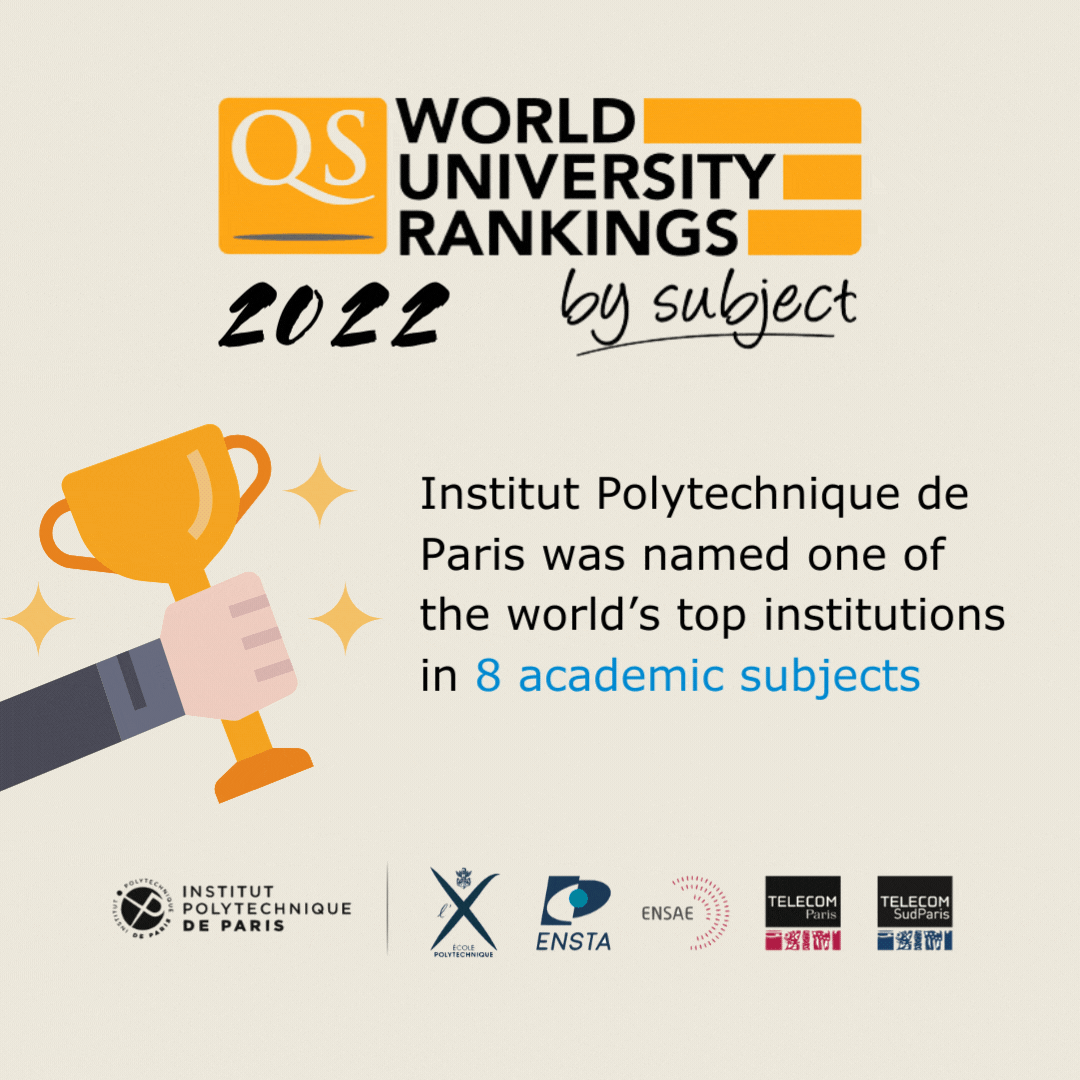QS ranks IP Paris in the Top 30 worldwide for the study of 4 subjects

In France, IP Paris has consolidated its leadership position as a science and technology institute as it ranks first in Engineering & Technology, Computer Science and Information Systems and Engineering / Mechanical.
In addition, the member schools of IP Paris achieved better results in some subjects thanks to the regrouping of the 5 schools within Institut Polytechnique de Paris. This is the case, for example, in Computer Science and Information Systems, where IP Paris ranked 31st worlwide whereas in 2021 Ecole Polytechnique was 55th, Télécom Paris 64th and Télécom SudParis in the 351-400 range. Similarly for Mathematics, where IP Paris ranked 14th worldwide whereas in 2021, Ecole Polytechnique was 24th, ENSTA Paris was in the 451-500 range and Télécom Paris in the 301-350 range.
It is in fact in Mathematics that IP Paris achieves its best performance (14th worldwide), followed by Engineering & Technology (21st), Natural Sciences (22nd) and Statistics & Operational Research (24th).
As for Economics & Econometrics, IP Paris showcases a very good score : 65th worldwide, while Ecole Polytechnique (the only member school ranked in 2021) was positioned 74th.
The QS World University Rankings by Subjects 2022 covers 1,543 institutions from 161 countries in 51 subjects. QS uses four key criteria to compile its rankings: academic reputation based on a survey with 100,000 scientific experts, reputation among employers based on a survey with 50,000 recruiting experts, nearly 96 million citations measuring the impact and quality of research, and the H-index, which measures both the productivity and the impact of a researcher's scientific output.














